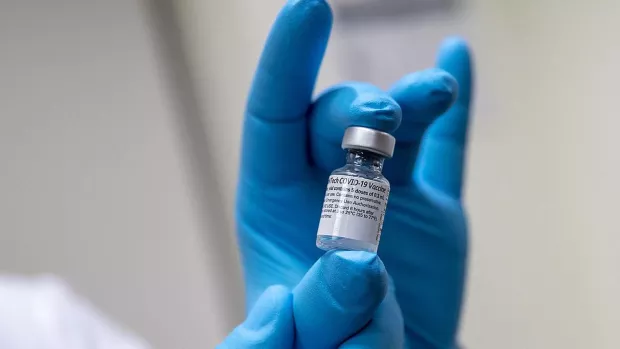
UK MS Register is revealing the physical and mental impact of COVID-19
More information is emerging about how the pandemic is affecting people with MS. We spoke to Dr Afagh Garjani, a researcher at the University of Nottingham, to find out more.
Since the beginning of the pandemic, the UK MS register has been collecting information about COVID-19 from people with MS. So far, more than 8,000 people have got involved, and it’s still ongoing.
Afagh explained the motivation for the study. “We want to find out what effect the COVID-19 pandemic is having on the lives of people with MS, both during the pandemic and in the future, so we can support them better.”

“It’s the only study, worldwide, that started with data from people with MS who don’t have COVID-19, and has been following them through the pandemic. The UK MS Register provided this amazing ready-made platform, with the chance to respond with lightning speed to such a crisis, and produce important results.”Dr Afagh Garjani
COVID-19 may worsen MS symptoms, but DMTs reduce risk
Recently, 404 people who thought they’d had COVID-19, filled in a survey about their MS symptoms 9 to 17 weeks after their COVID-19 infection.
Since having COVID-19, 207 felt their existing MS symptoms had got worse. 63 of those people said these symptoms had returned to usual levels in that time. 82 people reported new MS symptoms, and 36 of those people said these symptoms had gone away in that time.
It’s not surprising some people felt their MS got worse when they caught COVID-19. We know if a person with MS gets other types of infections, their MS symptoms might get worse while their body fights it off. And infections can even sometimes cause a relapse, which can take longer to recover from.
This survey doesn’t tell us if people had symptoms from a relapse or because they were fighting the infection. And some symptoms of COVID-19 could also have mimicked a worsening of MS. More research is needed to understand the long-term impact of COVID-19.
Afagh added “We also found when people who take DMTs got COVID-19, they had a lower chance of developing new MS symptoms after infection. So, we should be cautious about stopping treatment with DMTs during the pandemic because of fear of infection, especially as more people are becoming vaccinated.”
Read our latest advice on COVID-19 and MS treatments
Read our information about MS and the COVID-19 vaccines
Addressing mental health
The team has also looked at how the mental health of people with MS has changed during the pandemic. Afagh said, “mental health is a long-standing issue in the care of people with MS. We found they’re more likely to have anxiety or depression than the general population before, and during the pandemic.”
But, some results weren’t expected, “to our surprise, anxiety and depression levels in people with MS didn’t change in the early stages of the outbreak.”
Afagh suggested this could be due to over 85% of participants saying their social support had improved, or not changed during the outbreak. Or, sadly because people with MS already reached a ceiling of anxiety before the pandemic.
She said, “some people with MS were experiencing anxiety and depression before the pandemic. This remains an issue during the pandemic and it needs to be addressed. This highlights a need for developing wellbeing services for the mental health of people with MS regardless of the pandemic.”
Find out more about COVID-19 care and support
More to uncover
Afagh has a positive outlook despite the difficulties of the last year. She said, “with all the disadvantages of the COVID-19 pandemic, it seems to me it has provided some opportunities to do more research into MS. And, hopefully address some of the long-known issues in the care of people with MS. The more people that take part, the more we will understand, and hopefully improve the care that we provide for people with MS.”
Afagh and the rest of the team are now looking at how long-COVID may impact people with MS. They hope to share results soon and we’ll keep you updated.






